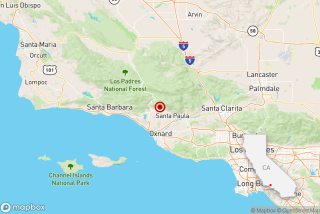2 New Dealerships Fill Auto Center to Capacity
- Share via
VENTURA — Despite dashed hopes for a baseball stadium to draw new customers, the Ventura Auto Center has acquired two new dealerships and is running at full capacity for the first time since 1995.
Hopes were boosted earlier this year when the city agreed to spend $7 million on two projects aimed at improving access to the center, one of the city’s largest sources of sales tax revenue. The center generated $1.3 million in tax revenue last year.
“We’re excited, because the center has really made a turnaround since Jack Weber sold his Nissan and Mazda dealership in the spring,” said John Masterson, executive director of the auto center.
“When corporate officers recommend places for franchises to go, we’re a top choice.”
On Monday, Vista Honda moved into space vacated by Weber, and used-car dealer Budget occupied a space relinquished by McDonald Mercedes in July 1995. This brings the number of dealerships at the center to 10.
Leaders of both new dealerships are optimistic.
“I am expecting my monthly sales to double, triple and quadruple,” said Steve Shuken, owner of Vista Honda. Shuken, who moved his dealership from Santa Paula, projects his sales at the center will be about $40 million this year. Shuken also owns a Ford dealership in Santa Paula.
Brian Britt, Budget’s regional manager, expects to sell 80 to 110 cars a month at his used-car dealership and projects yearly sales of about $20 million.
These and other local car dealers think future road improvements, combined with the center’s Ventura Freeway location, will make access easier and, in turn, boost sales.
On March 3, the City Council approved a $1-million plan to connect Olivas Park Drive and Perkin Avenue this summer. The council also agreed to spend $6 million to build new offramps at the Johnson Drive exit by 2000.
David Kleitsch, the city’s economic development manager, said the projects will improve street and freeway access to the auto center, and will help ensure that it remains competitive.
“The industry is moving toward consolidating, having fewer dealerships and making retail locations more freeway accessible, and we’re trying to position the auto center for success in the future,” Kleitsch said.
Some think the center’s future is precarious because it is close to the Oxnard Auto Center.
John Hofer, whose family owns most of the land on which the auto mall is built, was told just that in a study done by J.D. Power and Associates.
The report, published by the Agoura Hills research firm in late 1994, suggested that only one dealership could survive in the area.
Soon after, Hofer proposed the Centerplex, a minor league baseball stadium and sports complex that would be built in the celery fields behind the auto center.
The Centerplex proposal originally was to cost the city $18.7 million and also include an aquatic park, golf driving range, recreation and retail complex and an expansion of the Ventura Auto Center.
As part of the proposal, Hofer offered to donate 20 acres of his own land for the stadium and parking and also to help with some financing of the project.
From the start, Hofer linked the stadium proposal to the economic future of the auto center, which has brought in an average of $1.3 million in tax revenues for the city since 1994.
“The stadium is the anchor tenant in our master plan,” Hofer said at one point. “It will provide the necessary traffic count and spur the economic activity necessary to help stabilize the Ventura Auto Center.”
The plan was repeatedly scaled back through negotiations with the city, which did not want to absorb such a large bill.
Eventually, a frustrated Hofer withdrew his application to build the Centerplex last January.
But even without the stadium, the auto center appears to be doing well.
Not only have they managed to replace vacant showrooms, but auto center officials said they also anticipate expansion.
And despite its proximity to the Ventura Auto Center, the Oxnard Auto Center’s prospects look good as well.
With seven dealerships and all available showrooms full, the Oxnard center produced $1.4 million in tax revenue for the city last year.
Many of Oxnard’s dealers do not think their proximity to the Ventura Auto Center is hurting business.
“People think there is a big war, but there’s not,” said Lawrence Lee, president of the Oxnard Auto Center Assn. and general manager of Honda of Oxnard. “It’s just friendly competition.”
With continuing development and natural population growth, Lee thinks that dealers in both cities will profit.
“There have been dealers in both cities for 20 or 30 years,” he said. “They don’t agree with that study.”






